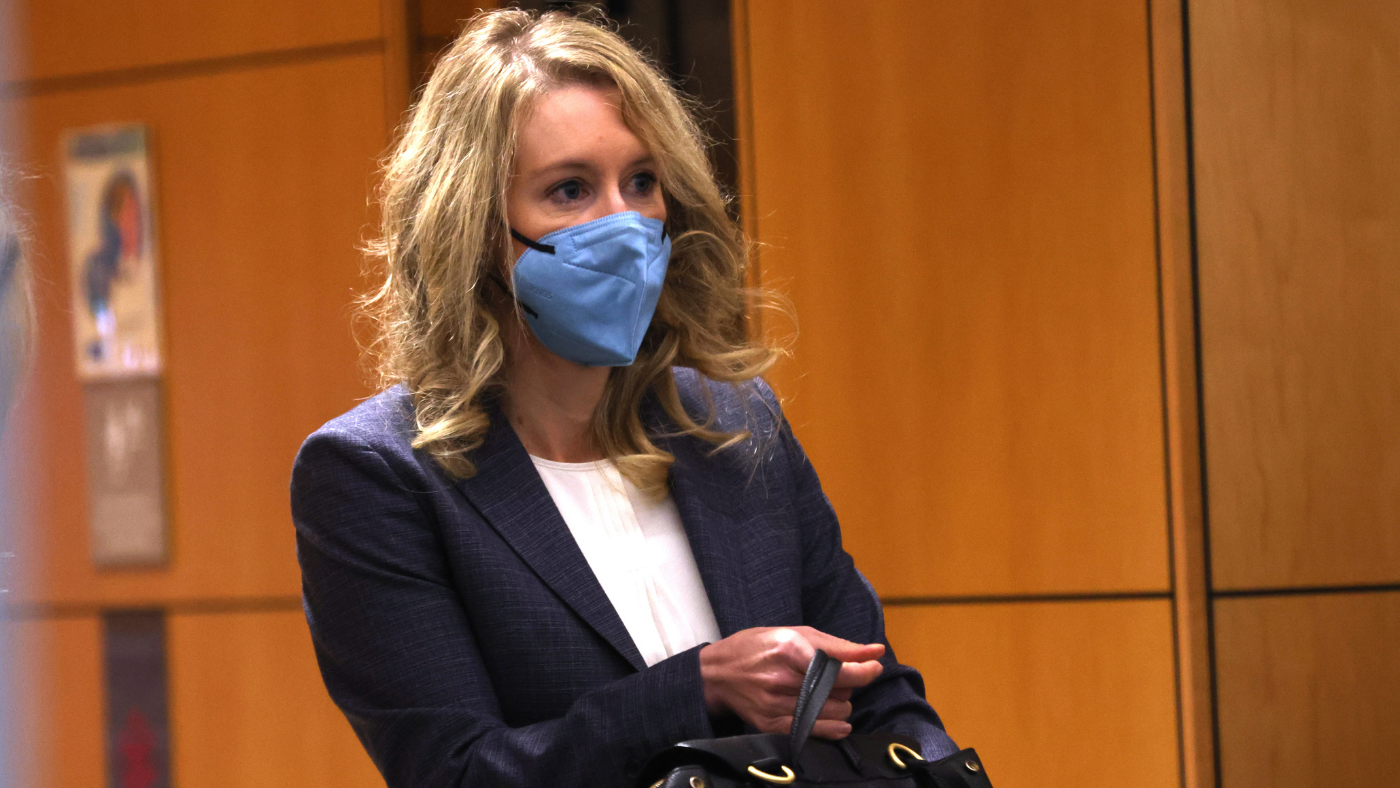The rise and fall of Theranos founder Elizabeth Holmes
Former tech start-up executive found guilty of fraud

A free daily email with the biggest news stories of the day – and the best features from TheWeek.com
You are now subscribed
Your newsletter sign-up was successful
Theranos founder Elizabeth Holmes is facing up to 20 years in prison after being convicted of defrauding investors following a three-month trial.
A California jury found Holmes guilty of two counts of wire fraud and two counts of conspiracy to commit fraud, after seven days of deliberation. Prosecutors had accused the former Silicon Valley tycoon of knowingly lying about technology that she claimed could detect a range of diseases with just a few drops of blood.
Holmes attracted hundreds of millions of dollars of investment before her “once-feted start-up collapsed”, in “perhaps the biggest scandal of corporate America’s modern age”, said The Times.
The Week
Escape your echo chamber. Get the facts behind the news, plus analysis from multiple perspectives.

Sign up for The Week's Free Newsletters
From our morning news briefing to a weekly Good News Newsletter, get the best of The Week delivered directly to your inbox.
From our morning news briefing to a weekly Good News Newsletter, get the best of The Week delivered directly to your inbox.
Self-made billionaire
Holmes was raised in Washington D.C. and comes from a prosperous background. Her father’s great-great grandfather founded Fleischmann's Yeast, which revolutionised America's bread industry.
A Stanford University drop-out, she founded Theranos in 2003 at the age of 19. The then “darling of Silicon Valley”, Holmes was “articulate, confident and good at presenting a vision – a mission as she described it – to revolutionise diagnostics”, said the BBC’s North America technology reporter James Clayton.
Forbes described her as “the world's youngest self-made female billionaire”, while business magazine Inc. hailed her in a cover story as “the next Steve Jobs”.
What was Theranos?
Valued at $9bn (£6.5bn) at one point, Theranos attracted high-profile backers including Rupert Murdoch by promising to revolutionise the healthcare industry by testing for hundreds of diseases with a pin prick of blood.
A free daily email with the biggest news stories of the day – and the best features from TheWeek.com
Introducing Holmes at a conference in September 2015, Bill Clinton declared that her investors’ futures were “in good hands”.
But Holmes’ bold claims began to unravel just weeks later, when The Wall Street Journal published the findings of an investigation that suggested the core blood-testing technology did not work. Although investors had “poured more than $400m” into Theranos, the company was struggling “behind the scenes to turn the excitement over its technology into reality”, the paper said.
Employees past and present were reported to be “leery” about the accuracy of the testing device developed by Theranos, with one staffer claiming that the firm was “failing to report test results that raised questions about the precision”.
The allegations triggered panic among investors and by 2018, Theranos had collapsed.
The rise and fall of Holmes and her former business has since been tracked in documentaries, books and podcasts, and also inspired upcoming television series The Dropout, starring Amanda Seyfried.
Silicon Valley culture
As Holmes’ trial drew to a close in December, The Verge said that “many questions have surfaced about what – or who – enabled Theranos to rise to such heights”.
Giving testimony in court, Holmes accused her former business partner and lover, Sunny Balwani, of having abused her and influenced her to commit fraud.
Balwani is due to go on trial next month on the same charges that Holmes faced. Both of the former Theranos bosses pleaded not guilty.
Holmes’ trial “laid bare the pitfalls of one of the go-to moves of Silicon Valley entrepreneurs – conveying a boundless optimism regardless of whether it’s warranted, known as ‘fake it ‘til you make it’”, said ABC News. But “few expect her conviction to lower the wattage on the brash promises and bold exaggerations that have become a routine part of the tech industry’s innovation hustle”.
Ellen Kreitzberg, a Santa Clara University law professor who attended the trial, told the broadcaster that although the guilty verdict “will send a message to CEOs that there are consequences in overstepping the bounds”, would-be investors “are still going to want to make more money on a promising idea”.
Neama Rahmani, a former federal prosecutor, told The Guardian that “attorneys are going to be advising their clients to be more careful, especially in what they say to investors”.
Whether Holmes’ conviction significantly changes Silicon Valley culture remains to be seen. But “considering how difficult white-collar fraud cases are to prosecute”, the US government “will be happy with what stuck” in her trial, said the BBC’s Clayton.
“The verdict sends a clear and frank message to Silicon Valley founders,” he added. “There are consequences when you say things to investors that aren't true.”